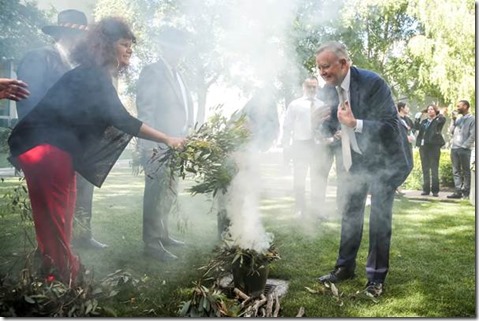One of the most offensive and unethical signals on culture used by Hopkins and Cooper in their chapters in the book Safety Cultures, Safety Models is the language of ‘over-ride’.
This is the kind of stuff Safety delights in when it has no ethic of risk.
Both authors suggest a desirability to over-ride’ national cultural values under the imprimatur of safety.
P.35
‘Organisations have it within their power to ensure that organisational culture over-rides national cultures.’
P38
‘Thesis 2 Organisations have it within their power to ensure that organisational culture over-rides national cultures.’
P56
‘suggesting that national cultures can be over-ridden by the company’s practices and their prevailing safety culture’ (NOT suggested by Hofstede)
P59
‘the quality of safety leadership at the local level to ensure risk management initiatives are implemented effectively tends to override national culture considerations’
I have discussed this issue previously (https://safetyrisk.net/safety-gives-me-the-right-over-other-rights/) in 2017 and this demonstrates a common belief in safety that it somehow designates a hierarchy of rights.
Where does this ‘god given right’ come from? Of course, this is common to any deontological ethic (https://safetyrisk.net/the-aihs-bok-and-ethics-check-your-gut/). Deontological ethics argues that there is a Natural Law of order (https://w.astro.berkeley.edu/~kalas/documents/ethics/wikipedia/Deontological%20ethics.pdf ) given by Nature (god), as is common in the philosophy of Kant.
The problem with Deontological Ethics is that its argument is founded on the assumption of its own notion of truth (https://egyankosh.ac.in/bitstream/123456789/81079/1/Unit-7.pdf ). Based on this notion of truth it argues for an absolute duty to uphold what it declares are natural law principles.
According to this theory one could deem that the principle and duty to safety ought to be able to over-ride ways of living that are unsafe.
Of course, such an assertion denies subjectivity and argues on a non-contextual, non-existential platform (https://ethicsunwrapped.utexas.edu/glossary/deontology), insisting on an absolute universality of a principle.
There are many other competing ethical ideas (https://safetyrisk.net/tackling-ethics-in-risk-a-philosophical-challenge/ ), it’s just that Safety choses the one that suits its concept of authority and power. How convenient to justify power over others in the name of good! (https://safetyrisk.net/safety-ethics-spor-and-how-to-foster-the-abuse-of-power/)
This is why a study of ethics ought to be foundational to safety (https://safetyrisk.net/essentials-in-ethics-for-safety/ ) and why the absence of such study ensures safety will never be professional (https://safetyrisk.net/what-does-safety-know-about-ethics/ ).
This is also why the amateurish Chapter on Ethics in the AIHS BoK doesn’t differentiate between ethics and moral philosophy. Again, how convenient.
So, let’s just take one simple example of how one might over-power and ‘over-ride’ a National culture.
First Nations people in Australia hold as ‘sacred’ the smoking ceremony. See Figure 1. Smoking Ceremony, where Indigenous Elder Pat Dodson is participating at the Garma Festival. At the same ceremony see the Prime Minister Anthony Albanese also participating (Figure 2. Prime Minister Smoking Ceremony). The ceremony endorses spirituality as real (https://aboriginalincursions.com.au/special-aboriginal-ceremonial-events/smoking-ceremony), symbolic and efficacious. The smoke is attributed with ‘cleansing’ and ‘therapeutic’ properties (https://indigenousknowledge.unimelb.edu.au/curriculum/resources/fire-in-ceremony ).
Figure 1. Smoking Ceremony
Figure 2. Prime Minister Smoking Ceremony
Despite claims to the contrary, all the evidence shows that breathing in smoke is not health or unsafe. But it wouldn’t matter to Safety apparently. If Safety does a risk assessment and determines something is unsafe, its unsafe! Then this gives Safety the right to ‘over-ride’ whatever. Of course, neither the auditor, BBS crusader or safety advisor have done any study in ethics.
I can think of a dozen National and cultural ‘rites’ that are harmful. I wonder how good old zero harm selective safety would go trying to over-ride any other these: circumcision, scarifaction or vine jumping (https://www.youtube.com/watch?v=A88fFm9dbVQ). Then there are other cultural practices such a breast augmentation or ‘hazing’ (https://www.alfred.edu/about/news/studies/sports-teams-survey/initiation-rites.cfm ) that are sanctioned by sub-cultures in the West as a ‘rite’. Indeed, many rite include a form of harm to the recipient.
By what ethic does my right justify a right over your rite?
Such a questions are fundamental in a study of Ethics and Moral Philosophy, but apparently such study is not necessary for Hopkins or Cooper.
If you want to study ethics in risk you can study with SPoR here: https://cllr.com.au/product/an-ethic-of-risk-unit-17/
This study gives participants a mature, practical, positive and constructive approach to the administration of safety in the workplace in ethical practice.





Ricardo Montero says
Hello,
Perhaps what is meant is misunderstood. I have lived in organizations where the practices that are achieved are very different from the local practices. For example, local practices imply very careless driving and in the organization’s facilities it is handled with great care (and it was not achieved by “punishing”), which by the way is very good. Is that what they mean when they say that ‘Organisations have it within their power to ensure that organisational culture over-rides national cultures.’
Rob Long says
Ricardo, it is a statement of arrogance. This is how Safety talks without an ethic of risk.